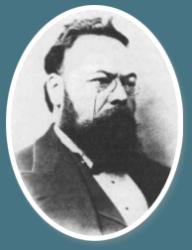RECURRENT CIRCUMANAL ABSCESS AND FISTULA
On May 22,1882, a married London merchant, thirty seven years of age, called to consult me in regard to recurrent fistula and circumanal abscess. He related to me that eighteen months previously he got an abscess at the seat, which his surgeon lanced and treated, and in end pronounced as cured. Cured it was, in the surgeon’s opinion; he was quite honest in this expressed opinion, but you might as well say that when you have plucked the apples from you apple from your apple-tree in the autumn you have cured the said apple-tree of apple-bearing, for, although the surgeon had “cured” the abscess he had not cured the patient of his power to produce more fistula-leading abscesses, in as much as the disease had returned each subsequent spring and fall.And this is really the point I am contending for, viz :- the abscess at the seat with its sequential fistula is not disease in its real essence, but only its local expression in the anal region. Not being satisfied with his”cure”, patient had consulted other surgeons in all there, for his anal trouble, and all three alike lanced and poulticed, and still it came afresh.
On examination I found he was suffering from an incomplete external fistula that had also just been diagnosed by a noted specialist for diseases of the rectum who had lately seen it, and urged the imperative necessity of cutting it at once.
Patient had a good deal of acne on his shoulder and neck, the eruption often showing white, mattery heads. He had only been vaccinated once, and that as a baby. Has had often and little indolent boil in the nape.
Rx Kali carbonicum 30.
June 12- he is much better; the opening of the fistula is now about the size of a split pea.
Rx Psorinum 30 in very infrequent doses.
July 16.- He is not so comfortable at the anus, and the fistula seems more active.
To have Thuja occidentalis 30 in very in frequent doses.
September 19 – There is great improvement in the trouble, and the skin of his neck and shoulders and nape is much healthier and clearer.
To have Mercurius corrosivus in the same strength as the Kali, Psorinum and Thuja.
Jan. 15, 1883- Fistula well, but there are still blind boils in his skin.
To have Aqua silicata, which finished the cure.
But in the autumn of 1883 another abscess formed, when the same kind of treatment, together with Arctium lappa. Calcarea carbonica, etc., was helpful. And finally in the spring of 1884 patient paid me three visits with what might be called the last faint flickerings of fistula disease Since then then have elapsed, and there has been no return, and no attempt at a return, and patient continues otherwise in excellent health. This I know, because he lately brought his wife to me for another matter relating to her health, when I gathered the fact just narrated.
From the circumstances that the disease in this gentleman was some little time before it was quite extinguished, and from the nature of the remedies which acted best, and from a certain number of other similar and dissimilar cases, i am quite satisfied that there is fistula and fistula -that it must in fact, be looked upon as a generic term for several constitutional complaints of a totally different nature, and that surgery of all and every kind is absolutely inadequate to cope with these various constitutional states groups together under the conventional term fistula.
I think the good results obtained by the aid of the knife are partly due to more attention to diet and partly to the fact that the fistulous processes themselves may be helped to heal up by antiseptics and cleansing washes. But we must ever bear in mind that forcibly healing a fistula does not necessarily restore the fistula patient to health. When I speak of health I do not necessarily mean that every patient with fistula feels ill, for such is not the case, inasmuch as we meet with quite a number of patient with fistula who can hardly be said to be subjectively ill at all, and yet we could hardly maintain that a man or woman with acne, blind boils, and fistula is in good health. The reason why they do not feel ill lies probably in the fact that these external expression of ill-health carry out from the blood and internal part the materies morbi and their being successfully landed on the outer surface, the internal feeling of well-being is not disturbed.
Still, you will generally notice that person that with fistula have a more or less unhealthy y skin, which is cheesy, greasy, spotty, pimply, or dirty looking, and they are also commonly anaemic.
Thus the gentleman whose case I have just narrated, when he came to me felt fairly well, but he looked pasty and pale, and his flesh was flabby; now he not only feels well. but looks it, and I have no doubt whatever that his future life is now much more safe, and I think it would be only fair if his life insurance company were to pay the fees he incurred.


